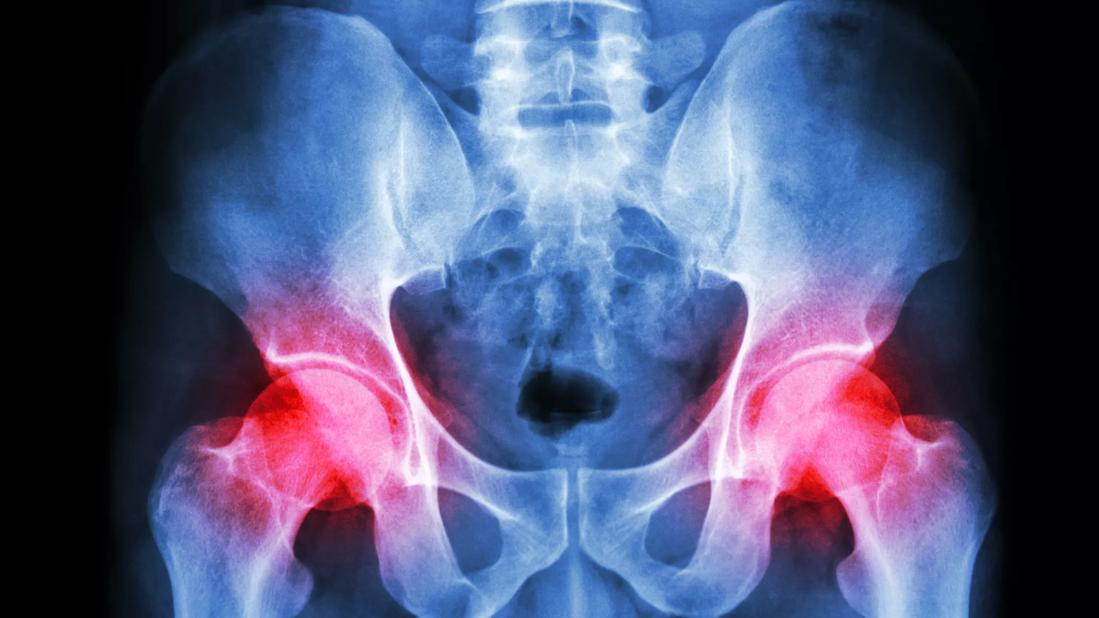Study findings quantify risk for the first time, and what this means for managing care

Findings from a recent Cleveland Clinic-led study show for the first time that a higher NarxCare score (NCS) is associated with adverse outcomes following total hip arthroplasty (THA). Taking this one step further, findings also reveal a quantifiable threshold in NCS that stratifies risk for patients undergoing THA.
Advertisement
Cleveland Clinic is a non-profit academic medical center. Advertising on our site helps support our mission. We do not endorse non-Cleveland Clinic products or services. Policy
The paper was published in Clinical Orthopaedics and Related Research.
The link between preoperative prescription drug use and adverse outcomes following THA has been well-established but lacks specificity when it comes to classifying risk.
Terminology falls short in capturing a multi-faceted picture of use. Preoperative classification such as “user” versus “non-user” or “chronic user” versus “non-chronic user” describes patterns, without recognizing dosage, duration, patterns, number of prescribers or number of pharmacies, all of which are important factors in defining and individualizing risk.
“We know there is more nuance and complexity to these binary categories,” says Nicolas Piuzzi, MD, senior author of the paper. The purpose of the study, he says, was to explore whether or not NCS could be repurposed to inform THA outcomes, and then use it as a data point to help guide clinical decision-making with patients.
NCS is a metric readily available in patients’ electronic health records. It reflects controlled drug-use patterns; higher scores reflect riskier-use patterns. The score continuously updates with each encounter, meaning that the score reflects changes in use patterns that reclassify risk for each episode of care.
The team led a retrospective review of 3,040 unilateral THA cases at Cleveland Clinic from November 2018 to December 2019. After controlling for potential confounding variables, the data show that patients with a preoperative NCS > 300 were more likely to experience 90-day readmission, procedure-related readmission, 90-day ED visits, length of stay > 2 days and non-home discharge compared with their counterparts with lower scores.
Advertisement
What does this mean for managing care? Dr. Piuzzi says that this association can alert physicians that a patient has a higher risk of complications, allowing them to anticipate and possibly prevent a negative occurrence.
He likens it to a hemoglobin A1c test for patients with diabetes. “Patients with diabetes used to have more postoperative complications than their non-diabetic counterparts,” he says. “But the use of HbA1c tests have helped to assess and inform care to minimize complications.”
For THA patients, NCS can provide a clinical road map of sorts, helping surgeons identify high-risk drug use patterns preoperatively and partner with patients to establish better prescription drug intake patterns to lower associated risks.
The team recently evaluated the association between NCS levels preoperatively and adverse outcomes following total knee arthroplasty (TKA). This data is currently awaiting publication. They are also interested in exploring how a preoperative decrease in score may affect postoperative outcomes, potentially limiting complications.
“Ultimately, we hope this investigation and others of its kind can serve to inform and guide pre- and postoperative drug regimens and identify patients who may need additional support in their recovery,” Dr. Piuzzi concludes.
Advertisement
Advertisement

How it’s similar but different from the direct anterior approach

Collaboration must cross borders and disciplines

Systematic review of MOON cohorts demonstrates a need for sex-specific rehab protocols

Should surgeons forgo posterior and lateral approaches?

How chiropractors can reduce unnecessary imaging, lower costs and ease the burden on primary care clinicians

Why shifting away from delayed repairs in high-risk athletes could prevent long-term instability and improve outcomes

Multidisciplinary care can make arthroplasty a safe option even for patients with low ejection fraction

Percutaneous stabilization can increase mobility without disrupting cancer treatment